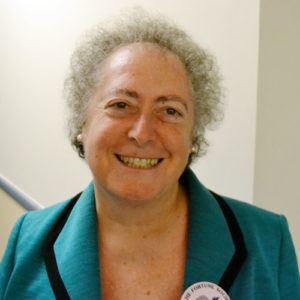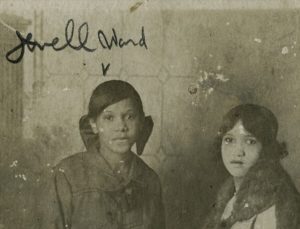Podcast: Play in new window | Download
—-
Joanne Page: The Fortune Society
Each year in the United States, more than 600,000 individuals are released from state and federal prisons. A staggering 6.9 million people are on probation, in jail, in prison, or on parole. On top of that, an additional nine million persons cycle through local jails.
As grim as these numbers are, more sobering is the fact that more than two-thirds of prisoners are rearrested within 3 years of their release. Half of those are reincarcerated.
Why is this recidivism rate so high? It has much to do with the failure of re-entry support programs. We have the world’s largest carceral state but no effective support system for people finishing their sentences and re-entering society. Consequently, crime rates soar, more individuals are victims of crime, families and communities suffer when we fail to deal with the consequences of over-incarceration. When reentry fails, the costs are high — more crime, more victims, and more pressure on already-strained state and municipal budgets. There is also more family distress and community instability. Community reintegration impacts several larger areas such as community health, education, employment, family relationships and housing.
In every aspect, failure to support recently released individuals is costly to society.
Guest – JoAnne Page is the President and CEO of the NY-based Fortune Society. Policymakers and researchers frequently cite the organization for its pioneering work. A graduate of Yale Law School, Page cultivated and created many of Fortune’s signature programs including substance abuse treatment, counseling, family services, HIV/AIDS health services, mental health programs, job training and employment services, parenting initiatives, and supportive and permanent housing. Page is a leading authority on issues including prison reform, solitary confinement, wrongful convictions, the over-incarceration of young men of color, sentencing reform, violence prevention, homeless housing, effective policing strategies, legislation, sex offender registries, and more.
—-
Alison Cornyn: The Incorrigibles
People in America are currently living through multiple crises. The economy is in tatters with unemployment very high. The health situation is a disaster with over a third of 1 million people dead from Covid and tens of millions uninsured.
The educational system has been ravaged, underfunded, inflicted with charter schools. Billionaire right-wing secretary of Education Betsy DeVos has only recently resigned. Almost half of the population is living in poverty. Families are in bad shape with suicides, drug addiction, and divorces soaring. Many don’t have enough food and homelessness is rapidly increasing. All this within the framework of a divided society, deeply impacted by racism.
How does this affect young people? And especially rebellious teenage girls? What laws apply to young people? How are they treated in a criminal justice system, historically and currently? What do we know about the level of abuse and neglect including sexual abuse?
Guest – Alison Cornyn, is a Brooklyn-based interdisciplinary artist, activist, and educator. She has focused her career on social justice issues. A special interest of Allison Cornyn’s has been the criminal justice system treatment of “wayward” teenage girls. She has focused her career on social justice issues and teaches in New York at the School of Visual Art’s Design for Social Innovation Program.
——————————–



